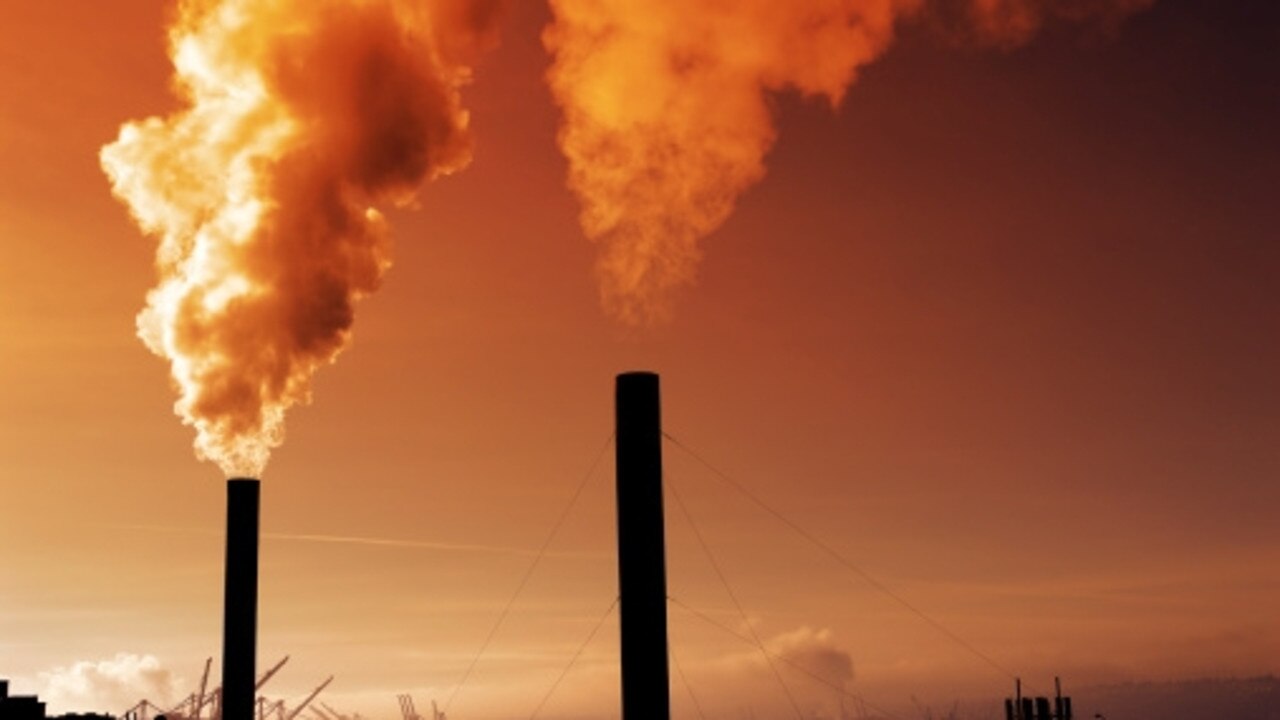Indonesia savours fruits of the forest
WITH carbon trading trees would be worth more alive than dead.

AT a low-key meeting with Indonesian President Susilo Bambang Yudhoyono's most trusted advisers at the UN General Assembly in New York this month, Australia strengthened its commitment to one of the world's most ambitious environmental ideals.
The $70 million funds that so far have been pledged by Australia are only a token figure in a plan that could transform Indonesian social and economic life.
The goal is to use carbon trading markets to revolutionise land management across the Indonesian archipelago, to conserve pristine forests, rebuild degraded lands, improve agricultural productivity, protect threatened wildlife and deliver economic empowerment directly to impoverished communities.
When combined with similar efforts in the Republic of Congo in Africa and the Amazon Basin it is a market that could be worth an estimated $15 billion a year.
Australia has already helped to map by satellite the forest cover across the entire Indonesian archipelago for 2000 and last year. Work is well under way to build the independent institutions needed to guard against corruption and make sure that investors from the developed world get the carbon stores they are paying for and that rural landowners are not exploited in the rush.
The challenge, too, is to find how best to communicate the scheme to village and community leaders who know nothing about climate change or carbon but can recognise that organic bush honey is a better proposition than honey contaminated by nearby plantings of palm oil.
Several pilot programs are under way across Indonesia but it will be some time before the floodgates of international funding are opened.
For Indonesia, the potential is enormous. A UN report released this week concluded that conserving Indonesian rainforests could generate three times more revenue than clearing them for palm oil plantations. The report estimates the carbon value of peat-rich forests ranges from $US3711 ($3800) to $11,185 a hectare across a 25-year period.
Two-thirds of Indonesia's carbon dioxide emissions profile comes from deforestation and Yudhoyono has committed the country to cutting carbon emissions by 26 per cent or 44 per cent with assistance from the developed world.
Any carbon stored in addition to the 26 per cent pledge can be sold by Indonesia into a regional or international carbon market to help fund the land use changes. Investing Australia's carbon funding offshore has been criticised by Opposition Leader Tony Abbott.
Australia is establishing an equivalent but smaller carbon market through its carbon farming initiative.
But when Australia's planned carbon tax changes to a fully fledged cap-and-trade scheme after 2015 there will be a pressing need for a deep pool of carbon permits from which to draw.
For Australian businesses, investing in the environmental health and social wellbeing of Indonesia may be the most economically rational way to deal with their climate change obligations under any future national, regional or international carbon abatement scheme.
The potential multilayered opportunities from stopping forest degradation in Indonesia and Papua New Guinea was identified by former Howard government environment minister Malcolm Turnbull.
Under Labor, Australia remains deeply committed to helping Indonesia prepare for the emergence of a regional or global carbon trading scheme. It has established the Kalimantan Forest Climate Project, located in the Kuala Kapuas district in Central Kalimantan, to demonstrate trees can become more valuable alive than dead.
Next year, Australia will co-chair with the Republic of Congo the UN collaborative program Reducing Emissions from Deforestation and Forest Degradation in Developing Countries or REDD-plus.
Progress in REDD-plus negotiations is expected to be a key feature of the upcoming UN Climate Change Conference in Durban in November, which is likely to be best remembered for its failure to reach agreement on a global replacement for the Kyoto protocol that expires next year.
Addressing a conference in Jakarta this week, Australia's climate change ambassador Louise Hand said 18 per cent of global emissions were attributable to deforestation and up to $15bn annually would be required to drive the necessary global change in the forest sector.
"This is the size of the investment needed to make forests worth more alive than they are dead," she said.
Australia has donated $273m to an International Forest Carbon Initiative, which is designed to create a market for carbon sequestration, REDD-plus.
Hand says public finance is necessary to set up the playing field but, in the long run, the private sector will provide most of the players. "The whole idea of REDD-plus is to change the incentive frameworks so that saving forests makes good business sense," she says.
The evidence is there that Indonesia's biggest timber companies have already got the message. Asia Pulp & Paper has developed a carbon store project and helped create the world's first UNESCO-recognised biosphere in Riau province that is viewed as a "laboratory for excellence in sustainable development".
The reserve is considered a guarantee of future water quality, a refuge for wildlife including the endangered Sumatran tiger and a business opportunity for local communities to reduce illegal and unsustainable activities.
This week, scientists from across the world will travel to Riau to study it.
On a visit to the area sponsored by APP, which has locked up some of its logging concessions in the 178,722ha heart of the Giam Siak Kecil reserve, the company was keen to showcase its environmental efforts and the way in which highly productive plantations could be used as a buffer to protect high conservation forest.
The company is well attuned to the rising global demands for environmental integrity and potential for new business opportunities in trading the carbon stores in trees that are not felled.
From a business perspective, APP managing director, sustainability Aida Greenbury says the challenge is to "monetise" the eco services provided by forest and peat lands that are left intact. The main problem, she says, is guarding against illegal encroachment.
APP's efforts are not enough, however, to stop environment group Greenpeace stalking the company on tiger-stripe painted motorcycles locally and campaigning against it worldwide.
At best, Greenpeace says, the biosphere project is "greenwash" that cannot excuse the actions of some of the company's timber suppliers. At worst, it argues, APP associates are mismanaging peat lands within the biosphere region, a charge APP denies.
The Greenpeace actions annoy the company, which insists it strives for best environmental practice and is unfairly portrayed.
Senior Indonesian government and NGO figures say the company is targeted because of its size and the fact it cannot retaliate in a way that less scrupulous companies may. And in a newly democratised Indonesia everyone agrees non-government organisations have a legitimate role in pressuring government and corporate behaviour.
But it all adds up to another layer of complexity to the challenge of devising a nationwide forest scheme. Right now, the high ideals enjoy unlimited political capital at a national level.
This week the English-language media in Jakarta has been dominated by forest stories. The headline on the page one lead story in The Jakarta Globe on Wednesday said "SBY Vows to Protect Forests". Yudhoyono said he would "dedicate the last three years of my term as President to deliver enduring results that will sustain and enhance the environment and forests of Indonesia".
The task of convincing Indonesians to value their forests more has been given to Yudhoyono's most trusted adviser, Pak Kuntoro, who is best known internationally for his role in co-ordinating the post 2004 Boxing Day tsunami reconstruction in Banda Aceh.
There are some similarities between the post tsunami reconstruction and negotiations for REDD-plus. In 2005, Kuntoro was faced with the high community expectations that come with the promise of billions of dollars in financial aid and the clamouring demands for immediate action from impatient but well-meaning charities.
Kuntoro resisted hasty action and focused on the long game. He demanded NGOs deliver quality houses, not quick ones. He enshrined the area's first system of individual property rights and brought meaningful democratic reforms to a region that had long been racked by civil war.
Kuntoro tells Inquirer he is proud there has not been one land dispute involving the 170,000 land titles he administered through a process of community consultation in Banda Aceh.
With REDD-plus, Kuntoro is again playing the long-term game. His challenge is to build understanding among the rural communities and to get the legal frameworks and organisations in place so investors can be confident that carbon savings they invest in are genuine.
He is also wary of moving ahead of community understanding. The challenge is made more difficult by the lack of knowledge about climate change or carbon at the community level.
"People living in the forest, they don't know anything about carbon or climate change, so it is really difficult to get them to understand such that there is no opposition or resistance," Kuntoro says.
"The paradigm in the past was you cut trees to get money, now we can change that paradigm and we can keep the trees and get money as well, but don't talk about carbon or they will not understand. Keeping water in the ground they understand, but what is carbon?
"The message needs to be sent by something else: I am going to improve your welfare with better water, fish, rattan. But don't touch carbon, they won't understand and if they don't understand they will kick you out of there."
World Wildlife Fund Indonesia's forest climate policy co-ordinator Iwan Wibisono says there are also big questions about how best to distribute any money that is raised.
WWF is piloting four REDD schemes in Indonesia and Wibisono says he would like to see money used to build social capital at the community level.
"The basic obstacle is the community understanding of the issue," he says.
"And there is some experience that money can become the source of conflict for a community."
But Indonesia's chief climate change negotiator, Agus Purnomo, believes REDD-plus funding should be given direct to farmers and could help to transform Indonesia.
"REDD will be the first and, so far, the only emission scheme at a global level that allows money to flow for good work on forestry," Purnomo says.
"It is also adding to the development sources that we need to alleviate poverty.
"The challenge of development in remote areas is abundantly clear. We don't have enough infrastructure, we don't have connectivity, we don't have enough skilled workforce.
"If we do want to alleviate poverty we have to go through all of those stage of development before people will get better jobs and better income."
With Europe facing financial troubles and the US unwilling to commit to climate change action, Purnomo believes a regional scheme involving New Zealand, Japan, South Korea and Australia holds the most promise.
"Of the four countries, New Zealand is the most ready but unfortunately their economy also is not that big," Purnomo says.
"Japan hopefully can recover from Fukushima and [South] Korea is intending to do it but they are not that organised.
"But if those four countries do act in three to four years' time we will have the regional carbon market in East Asia that will ultimately add to the carbon market of the world."



